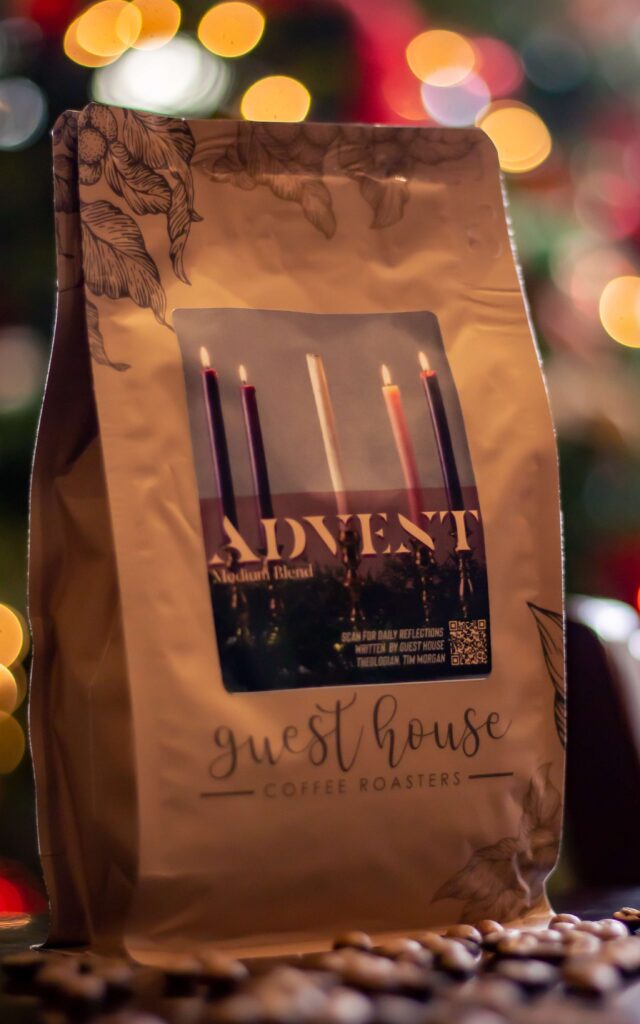
Image of the “The Denial of St. Peter” painted by Michelangelo Merisi da Caravaggio taken from https://en.wikipedia.org/wiki/The_Denial_of_Saint_Peter_(Caravaggio).
“For we did not follow cleverly devised myths when we made known to you the power and coming of our Lord Jesus Christ, but we were eyewitnesses of his majesty” (2 Peter 1:16).
What is the Bible for? This book’s a strange thing. It’s the setting of our personal devotions. It’s the common ground of our public worship. It’s the language of the Church. It’s an object of study for believers and non-believers alike. It’s been given to kings and queens upon their accession to the throne. It’s been waved high at protests and riots, displayed in cases, elevated in Church services, read from and quoted at inaugurations, sold door-to-door, burned in condemnation (by both Church and state!), marked up and poured over by monks and theologians, janitors and plumbers. Over the millennia of its existence (in one form or another), it’s had a life of its own, a biography more expansive than any man or woman, town or city, country or continent.
The apostle Peter clues us in to what the Bible’s doing, to what God’s doing with it. He writes,
And we have the prophetic word more fully confirmed, to which you will do well to pay attention as to a lamp shining in a dark place, until the day dawns and the morning star rises in your hearts, knowing first of all, that no prophecy of Scripture comes from someone’s own interpretation. For no prophecy was ever produced by the will of man, but men spoke from God as they were carried along by the Holy Spirit (2 Peter 1:19-21).
In a very important sense, all of Scripture is one big prophetic word to us (see 2 Timothy 3:16), telling us of God’s promised future in light of his remembered acts, “for to us a child is born, to us a son is given” (Isaiah 9:6). It’s God’s word to us, putting our present into perspective with this future. On the basis of this future, which is attested by the apostles (2 Peter 1:16) and the prophets (2 Peter 1:19)—rooted not in something one of us came up with or willed into being, but rooted in God’s act and presence with his people—we “make every effort” to bring faith through virtue, knowledge, self-control, steadfastness, godliness, and brotherly affection finally to love (2 Peter 1:5-7), so that we “may become partakers of the divine nature, having escaped from the corruption that is in the world because of sinful desire” (2 Peter 1:4). God’s promised future is that the Church, “the princess in her chamber,” as the psalmist writes, will be led to the king “with joy and gladness” (Psalm 45:13-15). It doesn’t just tell us his promises, it also tells us what’s true in light of them, as well as how to act in accordance with them (all prophecy involves this). Peter writes these things in view of his impending martyrdom (2 Peter 1:13-14), having learned the hard lesson of not making every effort (Luke 22:61-62).
Peter, as is well known, denied Christ three times just before his crucifixion—and this just after resolving to go to death with Jesus (Luke 22:33)! However, Jesus’ power and coming made a way for Peter to make good on his resolution (2 Peter 1:16; Luke 24:12, 34). Just this power, just this coming is the life of the Bible; it’s what makes this word living. As Peter has it, in the living scriptures, God addresses us. Because of this, they demand our attention. The Bible is God’s prophetic word to us, to aid us in the formation of endurance, to rebuke us in error, to embed us in the life of God with his people, to get us in on Jesus’ coming.
Today, I’d encourage you to contemplate the role that Scripture plays in your faith, to ask yourself how you relate to it. What is the Bible’s “use” for you, for the Church? How can you take that seriously?
Further Reading: Psalm 45; Isaiah 9:1-7; 2 Peter 1:12-21; Luke 22:54-69
Written by Guest House Theologian, Tim Morgan. These reflections are a complimentary addition to our Advent Blend Coffee Bags. Scan the QR code each day to read the most recent reflection.

More Advent reflections can be found here.